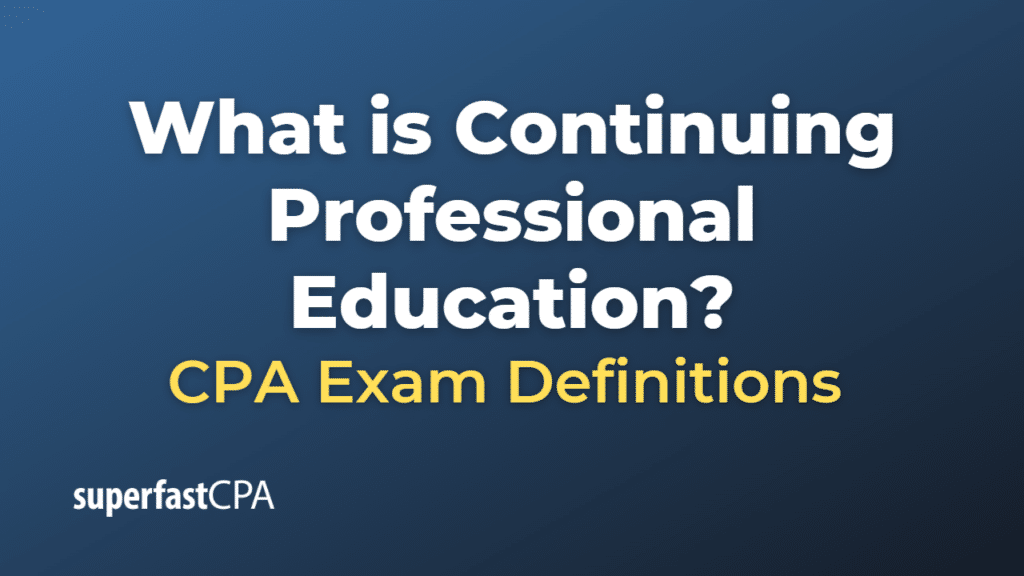Continuing Professional Education
Continuing Professional Education (CPE) refers to the ongoing learning and development activities that professionals engage in to maintain and enhance their skills, knowledge, and competence in their specific field or industry. CPE is essential for professionals to stay current with industry trends, best practices, and changes in regulations, as well as to advance their careers and maintain professional certifications or licenses.
CPE can take various forms, such as:
- Professional development courses: These courses are designed to help professionals enhance their skills, stay current with industry trends, and advance their careers. They can be short-term or long-term courses and may be offered by educational institutions, professional organizations, or employers.
- Workshops and seminars: These are short, focused events that provide targeted training and education on a specific topic. They can be held in-person or online and are often organized by industry associations, professional organizations, or educational institutions.
- Conferences and conventions: These events bring together professionals from a specific industry or field to share knowledge, network, and discuss current trends and challenges. They often feature keynote speakers, panel discussions, and workshops.
- Online courses and webinars: These are internet-based learning opportunities that can be accessed from anywhere, allowing individuals to learn at their own pace and on their own schedule. They can include pre-recorded lectures, live webinars, interactive exercises, and assessments.
- Certificate programs: These are specialized programs that provide in-depth training in a specific area or skill set. They can be short-term or long-term and typically result in a certificate of completion or a professional certification.
Many professions, such as accounting, healthcare, education, engineering, and law, require professionals to complete a certain number of CPE hours or credits to maintain their licensure or certification. Professional organizations and licensing bodies typically set the CPE requirements for their members, and it is the responsibility of the individual professional to ensure they meet these requirements. Failure to comply with CPE requirements can result in the suspension or revocation of a professional license or certification.
Example of Continuing Professional Education
Let’s consider an example of a Certified Public Accountant (CPA) who needs to fulfill Continuing Professional Education (CPE) requirements to maintain their certification.
John is a CPA working at an accounting firm. To maintain his CPA certification, he is required to complete 40 hours of CPE annually, as mandated by the state board of accountancy. John decides to engage in various CPE activities to meet this requirement and enhance his professional skills:
- Professional development courses: John enrolls in a course on advanced tax planning strategies offered by a local university. The course is 10 hours long and covers various tax planning techniques for individuals and businesses.
- Workshops and seminars: John attends a one-day seminar on the latest updates in accounting standards and regulations. The seminar is 8 hours long and covers recent changes to accounting standards and their implications for financial reporting.
- Conferences and conventions: John participates in a two-day accounting conference organized by a professional accounting organization. The conference features various sessions on topics such as financial reporting, auditing, and risk management, totaling 16 hours of CPE.
- Online courses and webinars: John completes a 6-hour online course on the latest advancements in accounting software and technology. The course includes pre-recorded lectures, interactive exercises, and assessments to help John improve his knowledge of accounting software tools.
By participating in these CPE activities, John accumulates a total of 40 CPE hours, fulfilling his annual CPE requirement. This ongoing professional education not only helps him maintain his CPA certification but also ensures that he stays current with industry trends, best practices, and changes in regulations, ultimately making him a more effective and valuable professional in his field.













